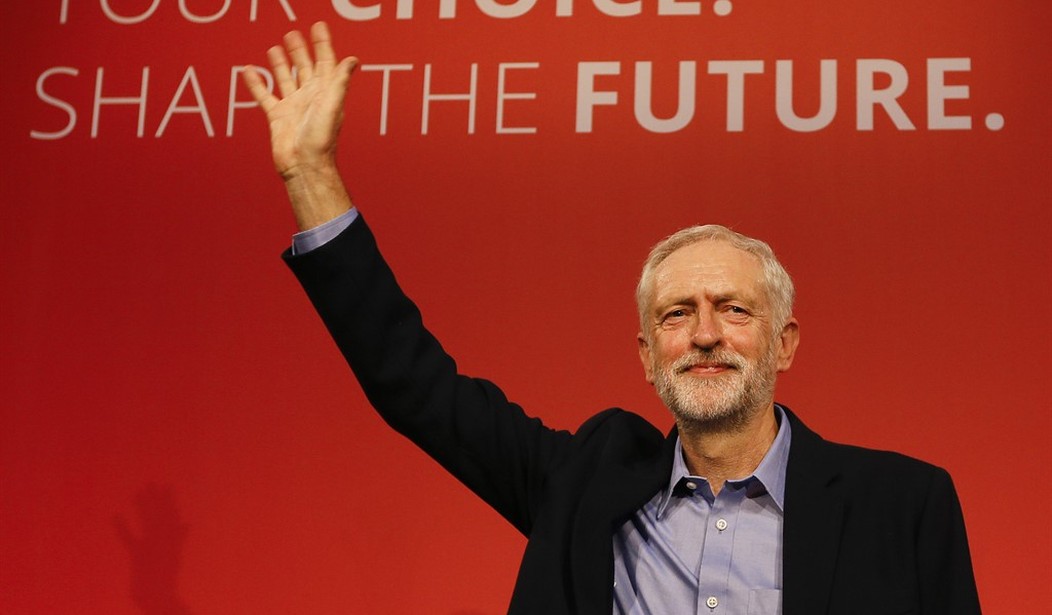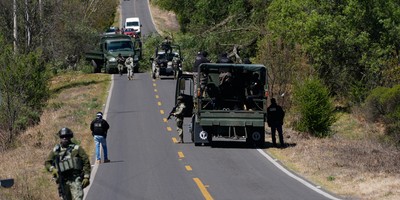Labour got smashed in the 2015 UK elections, which saw them virtually wiped out in Scotland and unable to pick up enough seats in England to stop the bleeding. Labour was seen as too left wing under Ed Milliband’s leadership, who led Labour to the party’s worst showing since 1987. HE promptly resigned after David Cameron was able to form a majority Conservative government for the first time since 1992. Yet, with Labour’s new leader, Jeremy Corbyn, it seems they’ve learned nothing from their 2015 fiasco. Corbyn is an unabashed left-winger, who already will have trouble forming a new shadow cabinet due to policy differences (via the Guardian):
Having been catapulted from a little-known member of parliament to leader of the opposition, Corbyn will now set about apologising for the Iraq war and strongly opposing cuts to public services and welfare. He began his leadership on Saturday with a speech to a rally in London in support of refugees.Addressing the party’s new members who helped propel him to victory, he said: “Welcome to our party, welcome to our movement. And I say to those returning to the party, who were in it before and felt disillusioned and went away: welcome back, welcome home.”
[…]
Corbyn’s victory is all the more remarkable because he started as the rank outsider, behind rivals Burnham, Cooper and Kendall, and only scraped on to the ballot paper when about 15 Labour MPs lent him their votes in order to widen the debate.
Initially, the odds of him winning were around 100-1, but his campaign was boosted when he won the support of two of the biggest unions, Unite and Unison, and became the only candidate to vote against the Conservatives’ welfare bill while the others abstained.
The Daily Mail detailed the views of the new Labour leader, and they’re very much in the vein of former leader Michael Foot, who led Labour to abject disaster in 1983. Ironically, it was after this defeat that Foot’s successor, Neil Kinnock, began the years-long project of purging the Trotskyite Militant Tendency faction from Labour’s orbit and moved the party towards the center:
The veteran left-winger does not merely advocate a return to 1970s-style socialism, the re-opening of the mines and nationalisation of all public utilities.Mr Corbyn also opposes Nato, Britain's nuclear deterrent and any controls on immigration.
He refused to support the Falklands War, backed the right of Iraqi insurgents to target British troops and, more recently, has defended Vladimir Putin, ISIS and Palestinian terrorists.
His views are so hard-line he even split with his second wife because she refused to send her child to the failing local state school in his constituency.
Michael Foot, who led the Labour party to its worst post war defeat in 1983, was never so far from public opinion – even supporting Margaret Thatcher's re-taking of the Falkland Islands in 1982.
Recommended
Nuclear disarmament was one of the many issues that sunk Labour in 1983. While former leader Ed Milliband congratulated Corbyn, acknowledged his mandate, and hoped he would reach out to the entire Labour Party, former Prime Minister Tony Blair wasn’t as accommodating, labeling Corbyn’s politics as being more fitting for an Alice In Wonderland-like universe:
So when people like me come forward and say elect Jeremy Corbyn as leader and it will be an electoral disaster, his enthusiastic new supporters roll their eyes. Neil Kinnock, Gordon Brown and I have collectively around 150 years of Labour party membership. We’re very different. We disagree on certain things. But on this we’re agreed.[…]
In the Alice in Wonderland world this parallel reality has created, it is we who are backward looking for pointing out that the Corbyn programme is exactly what we fought and lost on 30 years ago, not him for having it.
[…]
I have analysed all the different published polling and focus group evidence about Labour’s defeat, most recently the one by the BBC’s Newsnight and the one by Jon Cruddas. They all say the same. Labour lost because it was considered anti-business and too left; because people feared Ed in Downing Street with SNP support; and because he didn’t have a credible deficit reduction plan. They didn’t vote Tory because they thought he was “austerity-lite” but on the contrary because he didn’t seem committed enough to tough economic decisions.
That is the evidence.
Does this make any difference to the Corbynistas? Absolutely not.
So, is Labour willingly going into the political wilderness again? If so, history shows that this could be a long walk in the woods. In 1979, Margaret Thatcher was elected prime minister; with a series of majority Conservative governments that would last until Tony Blair’s landslide win in 1997. Yes, Conservatives had leadership changes; Thatcher was out by 1990 and John Major was voted in to replace her. Major won in 1992, but lost because Labour was finally able to get their act together. The Conservative infighting over the European Union didn’t help either, as it almost brought the Major government to the brink of collapse.
In 2015, the Conservatives will have a competent leader after Cameron, who stated he will not seek a third term and would resign before this current term is over. It will probably be Chancellor of the Exchequer George Osborne, whereas Labour has selected Michael Foot 2.0 to lead them to greener pastures (it’s really more like a death march). According to the New York Times, the British economy is doing much better, the budget deficit has been reduced, and jobs have been created. Corbyn’s win has ceded the political center of the electorate that could allow Conservatives to position themselves with those voters. It seems Conservatives just have to govern efficiently, and hope the EU divisions* don’t become too nasty. It seems not screwing it up will guarantee electoral success for them in 2020 thanks to Corbyn taking Labour’s reins.
*UK is scheduled to have a vote about whether it should stay in the European Union sometime before 2017

























Join the conversation as a VIP Member